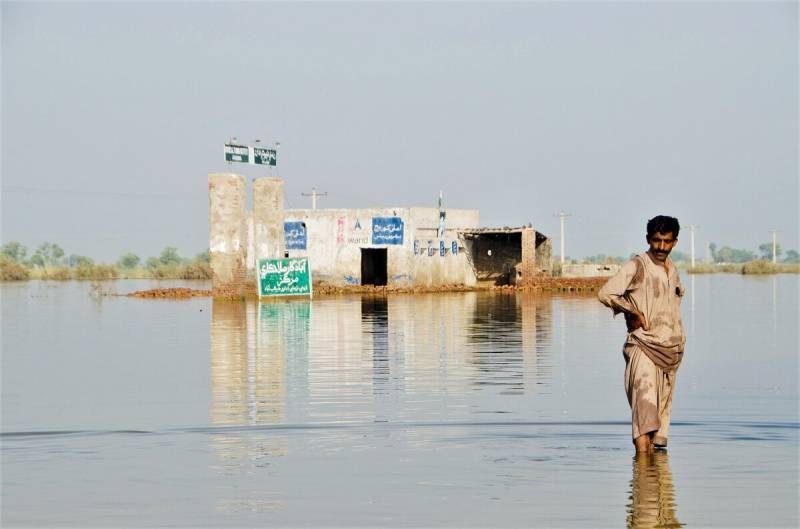
Climate change-induced disasters in Pakistan, characterised by intense heatwaves and catastrophic floods, are a bottleneck in the realisation of the country’s economic goals and its efforts to mitigate poverty. Significant damage to crops, livestock and infrastructure, amounting to $30 billion, has been reported owing to unfavourable weather conditions over the past few years. The Country Climate and Development Report (CCDR) released by the World Bank sheds light on the assertion that the accumulated risks of climate change, air pollution and environmental degradation in Pakistan are likely to hamper GDP growth up to 18-20% by 2050. This will further impact the pursuit of poverty reduction in the country.
Safeguarding the economy of Pakistan against climate change-induced hazards is inevitable, if sustainable and inclusive growth is to be achieved and secured. Effective policies for attracting private investment in sectors such as agriculture, urban infrastructure, water management, housing and municipal services must be formulated forthwith to improve adaptation to climate change in light of the calamities it has already wreaked on Pakistan.
The World Bank’s report has proposed five priority transitions for ensuring resilience against climate change in Pakistan. The first and foremost suggestion is to revamp the agricultural and food systems because they are a source of livelihood for the poor and underprivileged segment of the country’s population. The overutilisation of water and chemical inputs, as well as land degradation, are predicted to cause a decrease in agricultural yield of up to 50% by 2050. The report calls for adopting a stringent framework that uplifts the agricultural and livestock systems to ensure consistent income and enhance food and water security for rural citizens.
The report also recommended that Pakistan construct cities that are resilient as well as conducive to quality living. This is important in light of the fact that Pakistani population growth, despite being subjected to a greater risk of climate change, is projected to increase from 37% in 2020 to 60% by 2050. A framework of structured reforms is required so as to enhance the effectiveness of municipal services, transportation, and energy efficiency, thereby ensuring that cities are liveable.
Pakistan must direct efforts toward human capital development by ensuring universal access to quality education and healthcare, thereby incentivising the population to embrace measures required to ensure climate resilience
The government must devote a stringent focus to designing policies for sustainable energy resource exploitation in the country. Pakistan’s energy sector contributes extensively to economic growth and poverty alleviation, but on the darker side, it causes increased emissions of greenhouse gases and imposes a gigantic burden on state finances and foreign exchange reserves. This requires the acceleration of a just transition to renewable energy by introducing energy-efficient mechanisms, addressing technical losses in the electricity distribution network, and introducing progressive tariffs and funded subsidies in the energy sector. A shift towards low-carbon transportation can be considered, but it would require massive investments in the public transportation sector.
Another significant aspect is to focus on human capital development by ensuring universal access to quality education and healthcare, thereby incentivising the population to embrace the measures required to ensure climate resilience in the country. This will aid in prioritising the required actions and achieving the mutual benefits of adaptation to and mitigation of environmental hazards.
A holistic strategy composed of seeking assistance from the private sector and international investors and enhancing energy efficiency is the need of the hour. Firm implementation of these measures is likely to boost Pakistan’s climate resilience. The recent Supreme Court order directing the federal government to form a climate authority within a fortnight is a positive initiative to address imminent climate challenges and mitigation strategies that will ensure Pakistan’s climate resilience.

